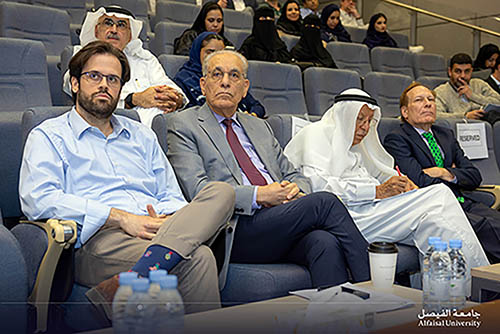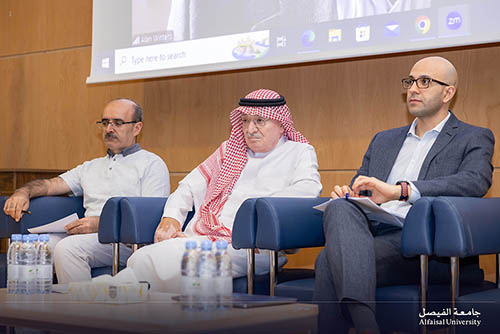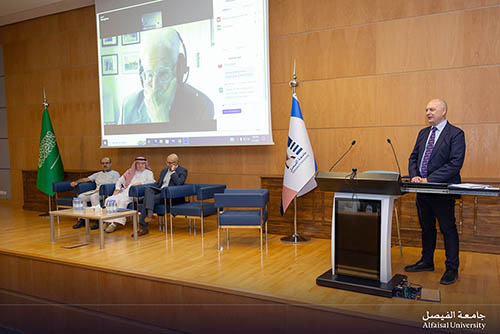Global Trade War: Understanding the Present, Predicting the Future
Amid intensifying global trade tensions and shifting economic alliances, the Alfaisal University Corporate Governance Center held a high-level panel discussion on May 7, 2025, titled “The Current Trade War: Implications for Global and Local Markets.” The event brought together distinguished economists, scholars, and finance experts to assess the short- and long-term effects of the trade war on the global economic landscape, with particular attention to the Saudi economy.
Held at Alfaisal University’s College of Business, the panel opened with welcoming remarks by Dr. Bajis Dodin, Dean of the College of Business, who emphasized the urgency of addressing how trade dynamics are evolving amid fierce global competition for technological, economic, and political influence.
Panel Highlights
Moderated by Dr. Jan (John) Smolarski, Associate Professor of Accounting, the discussion explored the underlying causes of the current trade war, ranging from tariff escalations to export controls and shifting geopolitical alliances. Dr. Smolarski, who brings decades of experience in both academia and corporate leadership, guided the conversation across a spectrum of pressing economic issues focused on corporations and pricing mitigation strategies.
Key topics covered included:
- The strategic motivations behind the trade war and its mechanisms
- Risks of a global economic recession
- Impacts on Saudi Arabia’s local markets, investment climate, and Vision 2030 diversification efforts
- Global stock and bond market volatility
- The rising appeal of gold as a safe-haven asset
- Oil market disruptions amid geopolitical realignments
- Currency devaluation trends and the emergence of “currency wars”
- Real estate and housing market instability linked to broader economic uncertainty
Distinguished Panelists
The event featured insights from four leading experts:
- Dr. Alan Winters, Former Co-Director of the UK Centre for Inclusive Trade Policy, offered a global perspective grounded in his leadership roles at the World Bank, the UK Trade Policy Observatory, and advisory work with international development institutions.
- Dr. Majid Al-Moneef, Chairman of the Saudi Association for Energy Economics, and former Governor to OPEC, discussed the trade war’s impact on oil markets, Saudi Arabia’s economic strategy, and global energy security.
- Dr. Necati Aydin, Professor of Economics at Alfaisal University, brought a multidisciplinary lens to the discussion, integrating macroeconomic research with insights from education, public finance, and technology policy.
- Dr. Izidin El Kalak, Associate Professor of Finance, contributed his expertise in corporate finance and capital markets, exploring how trade frictions affect investment flows and risk perceptions in global and local financial systems.
A Timely Conversation
As global supply chains experience unprecedented strain and financial markets recalibrate under uncertainty, the panel explored the importance of evidence-based policymaking and international cooperation. Historical examples of previous tariffs prove that they generally don’t work unless a country is trying to protect an underdeveloped industry.




